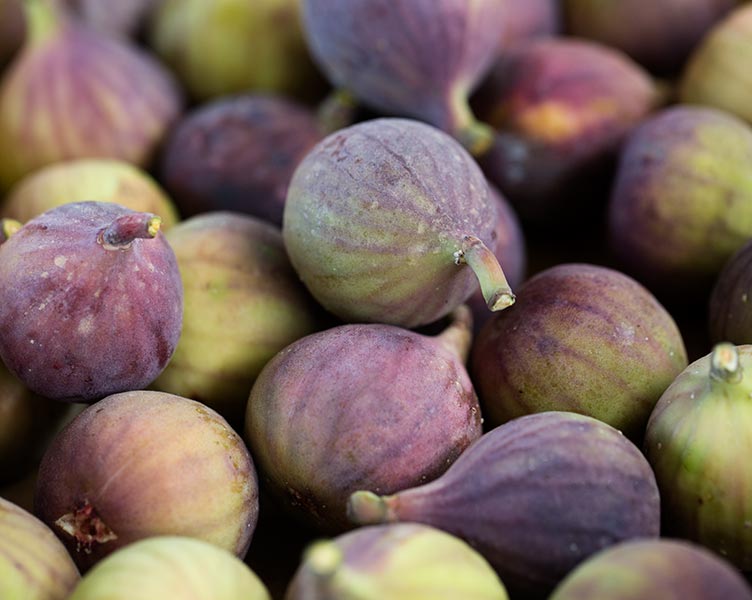Becky, spinal cord injury, US, “The biggest thing for me is water. If I’m hydrated and my system is healthy then everything works like it should. I try and avoid grease and fried foods, and make sure to eat vegetables even though I’m not a huge fan of them!”*
Know what you’re eating
The following dietary information is provided for general guidance. Always seek guidance from your healthcare provider before making any dietary changes
To get a well-balanced diet, you need to eat a variety of different foods. But nutrition is complex and it can be hard to navigate the food jungle. To help you establish the foundation for combining a proper diet, we have gathered an overview of the seven main classes of nutrients that the body needs. These are carbohydrates, fats, proteins, vitamins, minerals, fiber and water. It is important to consume these seven nutrients on a daily basis to build and maintain health.
Carbohydrates
Carbohydrates are a fundamental source of energy. They are transformed into glucose, the ‘fuel’ that many organs use. There are simple carbohydrates (sugars in sweets, honey, refined flour, juice, sodas etc) and complex carbohydrates (wholegrain rice and pasta, wholegrain bread, potatoes, vegetables and fruit). A healthy diet is one where simple carbohydrates are very limited, and complex carbohydrates are present in abundance.1,2
Fats
While many people still associate fat with unhealthy food, it is very rich in energy and should be part of any healthy diet. There are, however, different types of fats. The type of fat and its quality are just as important as the amount of it. Saturated fats and trans fats are typically found in butter, whole fat dairy products such as milk, cheese and cream, meat from ruminants (beef, goat, lamb) and fast food such as frozen pizzas. The intake of this type of fat, especially trans fats, should be very limited as it can contribute to cardiovascular problems, including heart disease. Generally, people in Western societies eat more saturated fat than is recommended. In many cases, it’s advisable to switch to low-fat dairy products and white meat such as poultry, and to replace butter with margarine. You may opt to incorporate plant-based options for milk products and/or meats.
Unsaturated fats contribute to several vital functions, including reducing and regulating the levels of LDL-cholesterol (popularly referred to as ‘bad cholesterol’). Unsaturated fats are most often found in vegetable oils (olive, canola, sunflower), some fatty vegetables such as avocados, seeds and nuts (walnuts, flaxseed and chia seeds) and in fish products. Omega-3 and Omega-6 fatty acids are especially important for our health. Fish and marine products are typically rich in them, as are some seeds and walnuts. In a healthy diet, unsaturated fats should represent the vast majority of fat intake, and saturated fats should be limited.1,2,3
Protein
Protein is an important source of energy that helps bodies build and repair the cells of tissues and muscles. Protein should represent 10-20 percent of a total diet. Some segments of the population (elderly people especially) may require an even higher intake of protein to help maintain muscle tone. Animal products like meat, fish and eggs are very rich in protein, as are some vegetable products like beans, certain cereals (quinoa, oats), and nuts. Since some protein-rich products can also be rich in saturated fats (red meat and full-fat dairy and cheese), your choice of protein sources will also have an impact on the type of fat you eat. Beans, fish, lean meats and nuts will provide you with a balance of protein and unsaturated healthy fats.4
Vitamins and minerals
Vitamins and minerals are present in small amounts in the food we eat. Most people can get a sufficient intake by eating a diet with plenty of fruit and vegetables as well as moderate amounts of fish, meat and dairy products (which contain vitamins A, D and E, plus minerals such as Calcium). Some conditions and life stages require increased or decreased amounts of certain vitamins and minerals. Ask your healthcare provider for advice on whether you might need supplements.
Fiber
Fiber is an important type of complex carbohydrate as it contributes to the feeling of fullness, regulates blood sugar and cholesterol levels, and promotes bowel movements.1,2 Unlike other food components such as fats and proteins, fiber can’t be digested or absorbed by the body. Instead, it passes relatively intact through the digestive system. This increases the volume of stool (which in turn stimulates contractions in the colon) and helps stool to retain water, making it softer and easier to pass. Read more about fiber here. Fiber is found in food of plant origin such as fruit, vegetables (lentils and peas are especially rich), beans, seeds, wholegrain cereal and grains (wholegrain rice, pasta, bread, oats, and wheat).1,2,5
Water and fluids
Water is almost everywhere in our body – inside our cells and circulating in our blood – and your body will obtain some of the water it needs each day from the food you eat. You will need to obtain the rest from drinking water or other fluids. Individual needs will be affected by things like physical activity and the climate you are in – you will need to drink more if you sweat due to sports or if you live in a hot climate and spend time outdoors. One rule of thumb is that an adult should drink at least 40mL of water per kilogram of body weight, plus 500mL.1 However, this can vary depending on your condition, so make sure to consult your healthcare professional for specific guidance.
It is recommended you drink water without any additives or sugar to both quench your thirst and meet your water needs. Coffee, tea, juice and sodas should only be drunk in moderation as they often contain high amounts of sugar or caffeine, which can cause you to lose more water than you gain. Alcoholic beverages should not count as source of liquid as the harmful effects of alcohol largely outweigh the benefit of the water they may contain.1,2
*Coloplast has compensated this user to share her product experience. Each person's situation is unique so your experience may not be the same. Talk to your healthcare provide about whether this product is right for you.
1. Bernardi M, Fedullo AL, Bernardi E, Munzi D, Peluso I, Myers J, Lista FR, Sciarra T. Diet in neurogenic bowel management: A viewpoint on spinal cord injury. World J Gastroenterol 2020; 26(20): 2479-2497
2. Bigford G, Nash MS. Nutritional Health Considerations for Persons with Spinal Cord Injury. Top Spinal Cord Inj Rehabil 2017;23(3):188–206
3. American Heart Association. The Facts on Fat. Accessed at: https://www.heart.org/en/healthy-living/healthy-eating/eat-smart/fats/the-facts-on-fats
4.American Heart Association. Meat, Poultry, and Fish: Picking Healthy Proteins. Accessed at: https://www.heart.org/en/healthy-living/healthy-eating/eat-smart/nutrition-basics/meat-poultry-and-fish-picking-healthy-proteins
5. British Nutrition Foundation 2018. Dietary fibre. Accessed at: https://www.nutrition.org.uk/healthyliving/basics/fibre/
Information from Coloplast® Care is for educational purposes only. It is not intended to substitute for professional medical advice and should not be interpreted to contain treatment recommendations. You should rely on the healthcare professional who knows your individual history for personal medical advice and diagnosis. Prior to use refer to product labeling for complete product instructions for use, contraindications, warnings and precautions.
Indication: The Peristeen® Plus Transanal Irrigation System is intended to instill water into the colon through a rectal catheter, which incorporates an inflatable balloon, inserted into the rectum to promote evacuation of the contents of the lower colon. The Peristeen Plus Transanal Irrigation System is indicated for use by children (2 years - <12 years old), adolescent (12 years - < 18 years old), transitional adolescent (18 - <21 years old) and adult patients with neurogenic bowel dysfunction who suffer from fecal incontinence, chronic constipation, and/or time-consuming bowel management procedures.
Contraindications: Peristeen Plus Transanal Irrigation must not be used in the following situations: known anal or colorectal stenosis, colorectal cancer (active/recurrent), radiotherapy to the pelvis, and recent abdomino-perineal surgery, active inflammatory bowel disease, acute diverticulitis, severe diverticulitis, previous diverticulitis and diverticular abscess, chronic symptomatic diverticular disease, within 3 months of abdominal, anal or colorectal surgery, within 4 weeks of endoscopic polypectomy, recent colonic biopsy, recent endoscopic mucosal resection (EMR) and recent endoscopic sub-mucosal dissection (ESD), severe autonomic dysreflexia, ischemic colitis, during Spinal Cord Shock Phase, complex diverticular disease, in patients who are pregnant and have not used the system before*. Since the list is not exhaustive, the healthcare professional should always consider individual patient factors as well. *If the patient is pregnant and has never used transanal irrigation before, they should not start the irrigation procedure during pregnancy.
Warnings: Peristeen Plus Transanal irrigation procedure should always be carried out with caution. Bowel perforation is an extremely rare, but serious and potentially lethal, complication to transanal irrigation and will require immediate admission to a hospital, often requiring surgery. See the device manual for complete user instructions, contraindications, warnings, precautions, and potential complications/adverse events. For further information, call Coloplast Corp at 1-855-605-7594 or consult the company website at www.coloplast.us. Caution: Federal law restricts this device to sale by or on the order of a physician.



